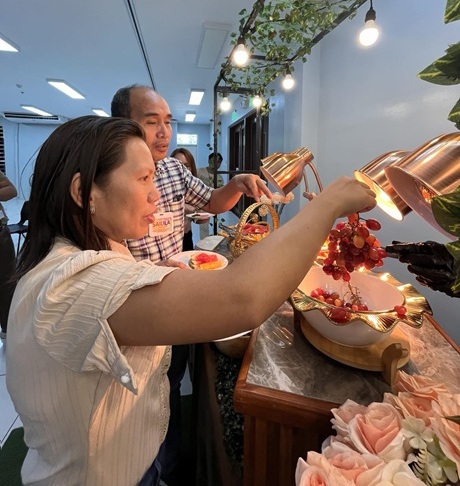
To mark its 40th anniversary this November, the Philippine Rice Research Institute (PhilRice) is promoting healthier and more mindful food choices through its Healthy@40 campaign, aligning with President Ferdinand R. Marcos Jr.’s call for prioritizing health and nutrition in government plans.
Outlined in Memorandum No. 2025-056 released in February, the new guidelines aim to reduce the risks of diet-related diseases such as hypertension and diabetes while promoting healthier eating habits among government workers.
President Marcos, in a recent statement, urged local governments to help in reducing malnutrition.
“Public institutions should model healthful practices. By creating a healthier food environment for our staff, we also show our commitment to the President’s call for stronger nutrition integration across all levels of government,” Dr. John C. de Leon, executive director, said.
The directive, which preceded Ormoc City’s Executive Order No. 2025-012 banning sugary beverages in all government-organized events, mandates a shift toward balanced meals based on the Department of Health’s Pinggang Pinoy.
The Healthy@40 campaign promotes the consumption of fruits and vegetables, fiber-rich foods, and meals with reduced sodium and sugar. Water is the default beverage in events, though naturally flavored options like tanglad, calamansi, or salabat are also encouraged.
Staff may still choose sugary drinks, but these are not included in official provisions and must be purchased personally. Creamy pasta dishes and cakes may still be served in moderation, while brown or pigmented rice is preferred, with a default serving of half a cup if plated to help reduce food waste. Fresh fruits, nuts, and lightly seasoned meals are encouraged as healthier snack and meal options.
“Our new food guidelines are about influencing food providers and empowering everyone to make healthier choices and build a culture of wellness from the inside out,” the executive director added.
In a recent training, Catherine Tabunan, senior administrative assistant, planned and procured food for the two-day event following the new catering guidelines.
“There was noticeably less food waste compared to previous events. Participants also appreciated the healthier snack options—fruits and nuts—over the usual pasta dishes, which often left them too full for lunch or dinner,” she said.
In support of sustainability, staff are also encouraged to use reusable water bottles, plates, and utensils to minimize single-use plastics.




